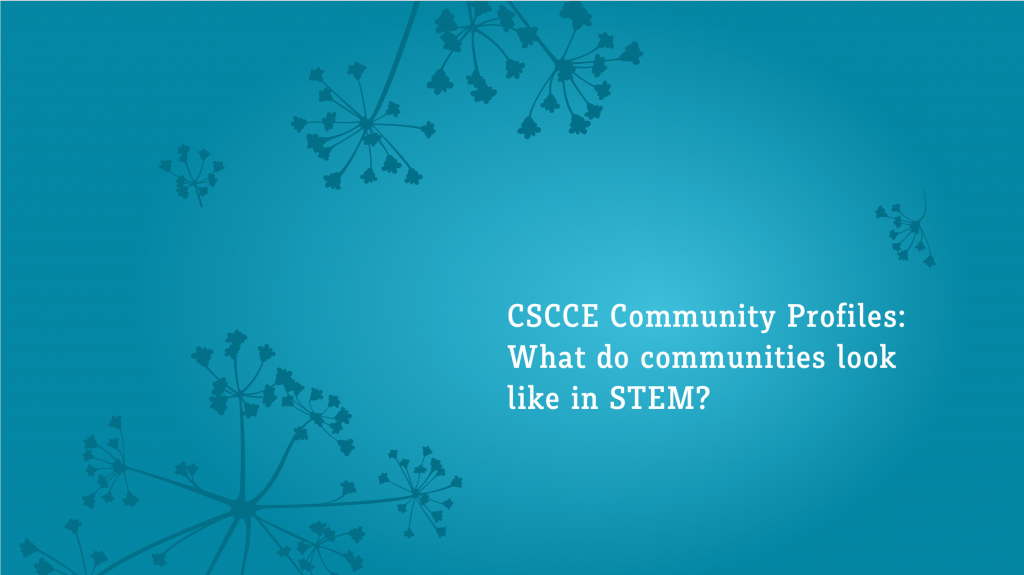On this month’s community call we unveiled the first round of our community profiles, with Lou and independent contractor Sara Kobilka presenting the goals and methodology of our research. We also heard from three members of our community who took part in the study, and how their profiles helped them think about their communities, and their engagement strategies, in new ways.

The CSCCE Community Profiles Project
Begun in early 2020, our community profiles project set out to understand how communities – and community managers – in science operate. While we knew that STEM communities were diverse in their underlying motivations, community make up, and programming strategy, we had no data to let us dig a little deeper into what makes a successful scientific community. We also wanted to further solidify a terminology framework; to evolve a shared language that allows us to compare efforts across communities.
So, we decided to design and distribute a survey to find out more. To do this, we formed a working group in our Slack-based community of practice and hired Sara Kobilka to work with us. You can read more about the methodology behind our process in this recent blog post.
With the data in hand, we then worked with a design firm (C&G Partners) to create a two-page infographic layout that would serve as our profile template. We worked together with our working group to refine this design, and to determine how best to translate the data in a way that would be comparable across the profiles.
We are currently working behind the scenes to create additional supporting materials (similar to our recently-released Community Participation Model) for this project, which will be released in the coming weeks.
13 profiles is just a beginning, though, and we know that we need to extend this study further. If you would like to see your community profiled, please let us know by filling in this short form.
Watch Lou and Sara’s presentation in full.
How do these profiles help community managers?
Leslie Hsu (USGS Community for Data Integration), Steve Van Tuyl (Academic Data Science Alliance), and Mate Palfy (preLights) joined this month’s call to share how their new community profiles, and the process of creating them, helped them in their work.
One of the biggest takeaways from their presentations was that by working through the survey they were able to think about their communities in new ways. This included considering the true size of their community and how active their membership was, how their community has changed since it formed, and how the programming they are offering meets (or doesn’t meet) the needs of their members.
They also noted some of the ways these profiles will be helpful as a collection. It’s easy to scan the profiles to look for relevant keywords and then be able to reach out to other community managers with similar challenges or activities. We discussed the potential for developing new connections and networks, and building out the project to focus on certain scientific disciplines or types of convening organization (infrastructure organization, research collaboration, community of practice, or scientific association).
We also talked about how these profiles are a snapshot in time, and that hopefully we will be able to revisit these communities in the future to see how things have changed. In particular, the presenters noted that the ongoing COVID-19 pandemic has had a big impact on their programming and may ultimately shift their way of working for some time to come.
When considering outputs, evaluation, and metrics for success, they noticed that they had to consider not only what they think of as “being successful,” but also what others from outside their organization might see as a success.
You can watch each of their presentations in full here:
Acknowledgements
A big thank you to our presenters this week, and to everyone who participated in the call and added to the discussion. If you have ideas for future calls, or would like to talk to us about creating a profile for your community, please let us know at info@www.cscce.org.